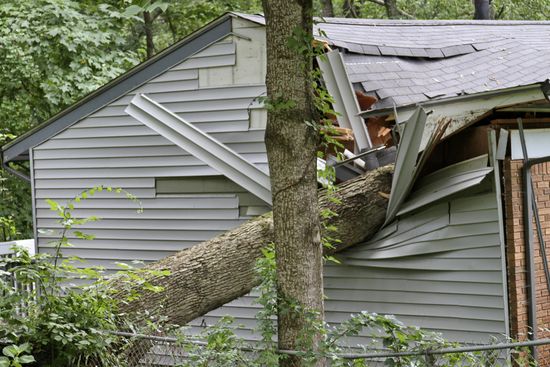Introduction
When it comes to ensuring the safety and integrity roof repair of your home or commercial property, the roof plays a crucial role. It protects against harsh weather conditions, enhances aesthetic appeal, and contributes to energy efficiency. Therefore, hiring the right roofing contractor is paramount. But how do you select the best from a sea of options? The answer lies in asking the right questions. This article will delve into Top Questions to Ask Potential Certified Roofing Contractors to help you make an informed decision.

Top Questions to Ask Potential Certified Roofing Contractors
What Are Your Credentials and Certifications?
Understanding the qualifications of your potential roofing contractors is essential for making an informed choice. Always ask for proof of their certifications and licenses.
- Why are credentials important? Licensed roofing contractors have met specific standards set by governing bodies. This ensures they possess the necessary skills and knowledge. What should you look for? Look for certifications from recognized organizations that validate their expertise.
Do You Have Insurance?
Insurance can save you from significant headaches down the line. Always confirm whether your selected roofing contractor carries both liability insurance and workers’ compensation.
- What happens if they don’t have insurance? If an accident occurs on your property without proper insurance, you could be held liable for any injuries or damages. What types of insurance should they have? Liability Insurance Workers' Compensation
Can You Provide References or Reviews?
A reputable contractor should readily provide references or direct you to online reviews about their services.
- Why is this important? Testimonials give you insight into how trustworthy and skilled a contractor is. Where can I find these reviews? Check platforms like Google Reviews, Yelp, or even social media pages.
What Types of Roofing Services Do You Offer?
Not all roofing companies provide the same array of services. Ensure that they offer what you need—be it residential roofing services, commercial roofing services, emergency roof repair, or specialized repairs like flat roof repair or metal roof repair.
- Why does this matter? Knowing their service range helps ascertain whether they can meet your specific needs. Common services include: Roof installation services Roof maintenance services Roof leak detection Emergency roofing services
What Is Your Warranty Policy?
A solid warranty policy demonstrates confidence in workmanship and materials used.
- What should I expect from a warranty? Ask about both material warranties (from manufacturers) and labor warranties (from contractors). Typical warranty lengths: Material Warranties: Often range from 20 years to lifetime coverage Labor Warranties: Usually between 1 year and 10 years
How Do You Handle Project Changes?
Unexpected issues are common during roof renovations or repairs. Understanding how a contractor manages these changes can provide peace of mind.
- What should I inquire about? Ask how they communicate additional costs related to unforeseen circumstances. Red flags: Be cautious if they seem evasive about change orders or cost adjustments.
What Is Your Estimated Timeline for Completion?
Knowing how long a project will take helps in planning other activities around your home or business.
- Why does this matter? Long delays can lead to increased costs due to prolonged usage of temporary fixes. Questions to ask: When will you start? How many crew members will be working on-site?
How Do You Ensure Safety on Site?
Safety should be a top priority for any certified roofing contractor.
- What safety protocols do they follow? Inquire about their safety training programs for employees. Key safety measures include: Proper use of fall protection equipment Regular safety meetings
What Materials Do You Use?
The longevity and performance of your roof heavily depend on materials used during installation or repair.
- What’s the difference between quality materials? Investing in high-grade materials may initially cost more but often saves money in repairs down the line. Ask about: Types of shingles (asphalt vs. tile) Flashing materials
How Will You Handle Cleanup After Completion?
A reputable contractor should leave your property as clean as they found it—or better!
- Why is cleanup crucial? Debris left behind poses safety risks and detracts from curb appeal.
What Are Your Payment Terms?
Understanding payment structures before starting any project helps avoid misunderstandings later on.
- Common payment methods: Many contractors require a deposit upfront followed by payments at various project milestones.
FAQs About Certified Roofing Contractors
How do I know if a roofing contractor is certified?
To verify certification, check with local licensing authorities or professional organizations such as the National Roofing Contractors Association (NRCA).
How much does roof repair typically cost?
The average roof repair cost varies based on numerous factors including size, type of damage, and materials required. On average, homeowners may spend anywhere from $300 to $1,200.
What factors affect roof replacement cost?
Factors influencing roof replacement costs include:
Size of the home Type of materials chosen Labor costs in your areaWhen should I consider emergency roof repair?
Emergency repairs are necessary when there’s immediate danger such as severe leaks during storms or visible structural damage that could lead to further complications if not addressed promptly.
Can I install my own roof?
While DIY projects can save money upfront, improper installation may lead to costly long-term consequences such as leaks, mold growth, or even voiding manufacturer warranties.
Is regular maintenance necessary for roofs?
Yes! Regular maintenance helps extend the lifespan of your roof by identifying potential problems before they develop into expensive repairs.
Conclusion
Choosing certified roofing contractors involves thorough research and asking critical questions that safeguard your investment. By understanding what credentials matter most, what warranties are available, and how each company handles various situations—from emergencies to routine inspections—you’ll position yourself as an informed homeowner ready to tackle any roofing project head-on. Remember that effective communication with potential contractors lays the foundation for trust—a vital ingredient in achieving excellent results with your roofing needs. Make sure you're equipped with these insights when embarking on your next roofing endeavor!